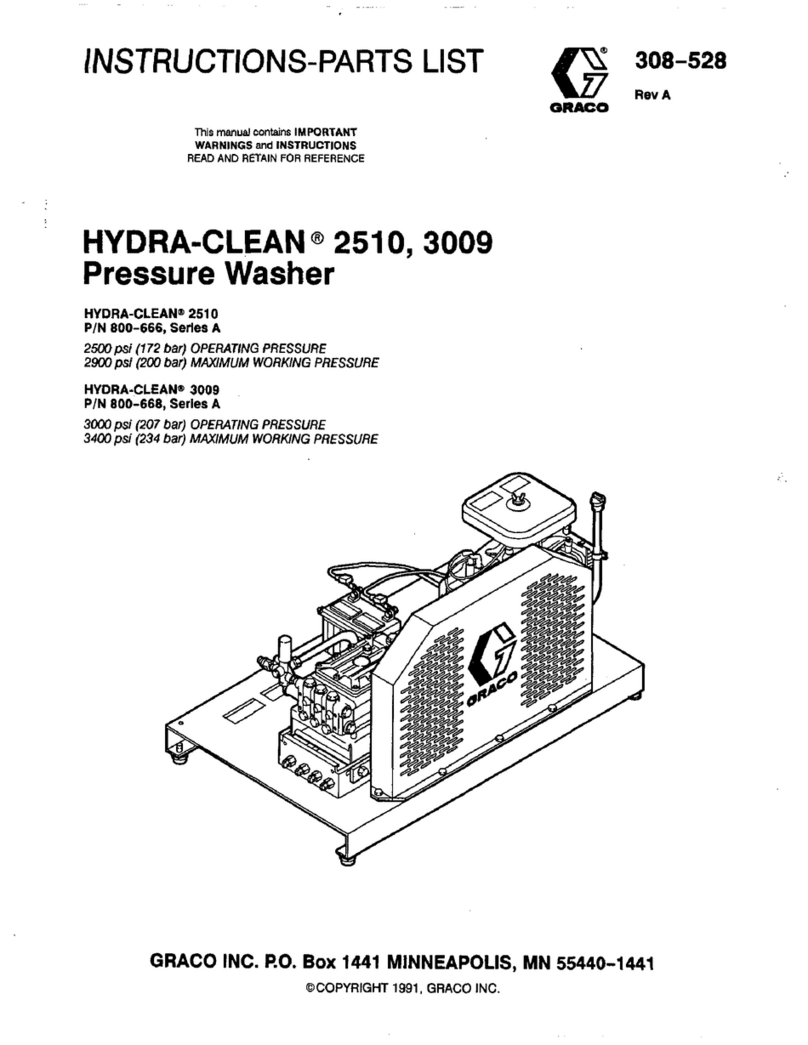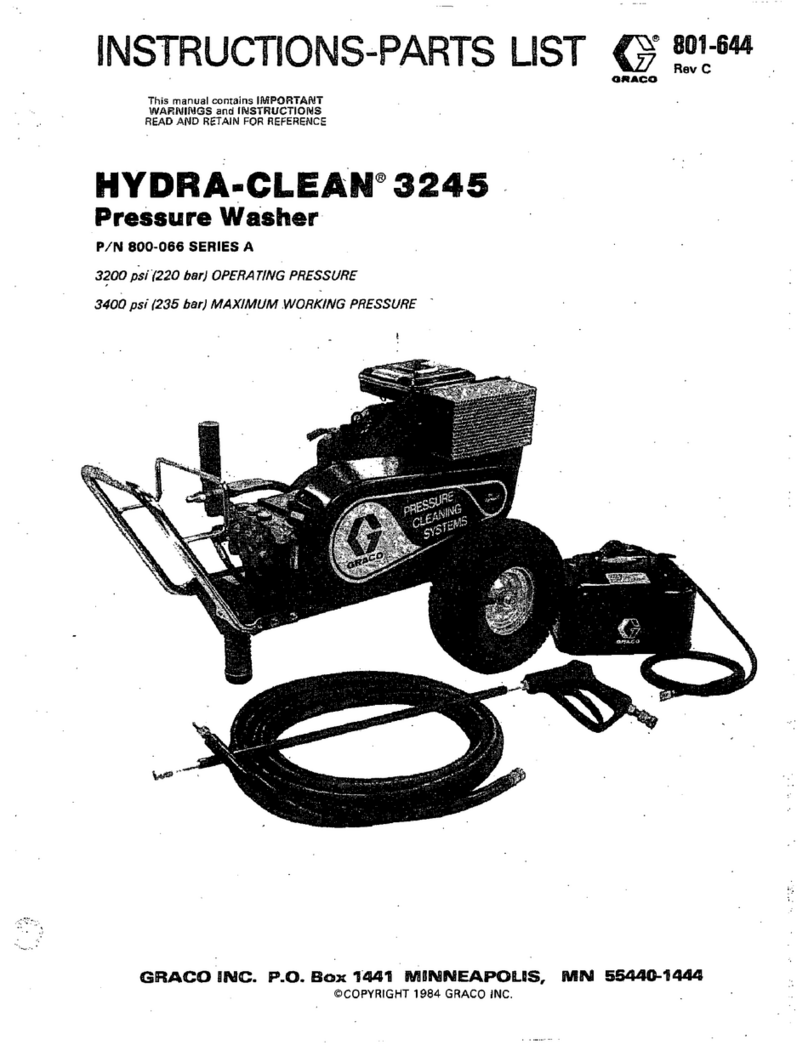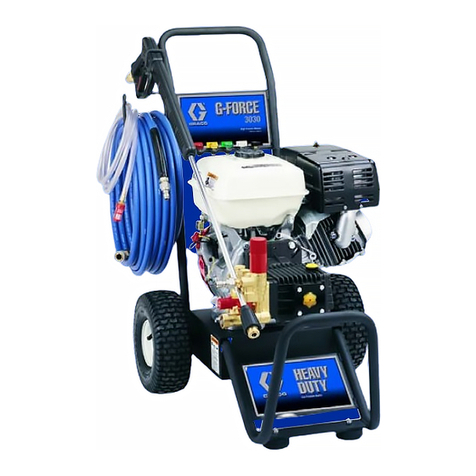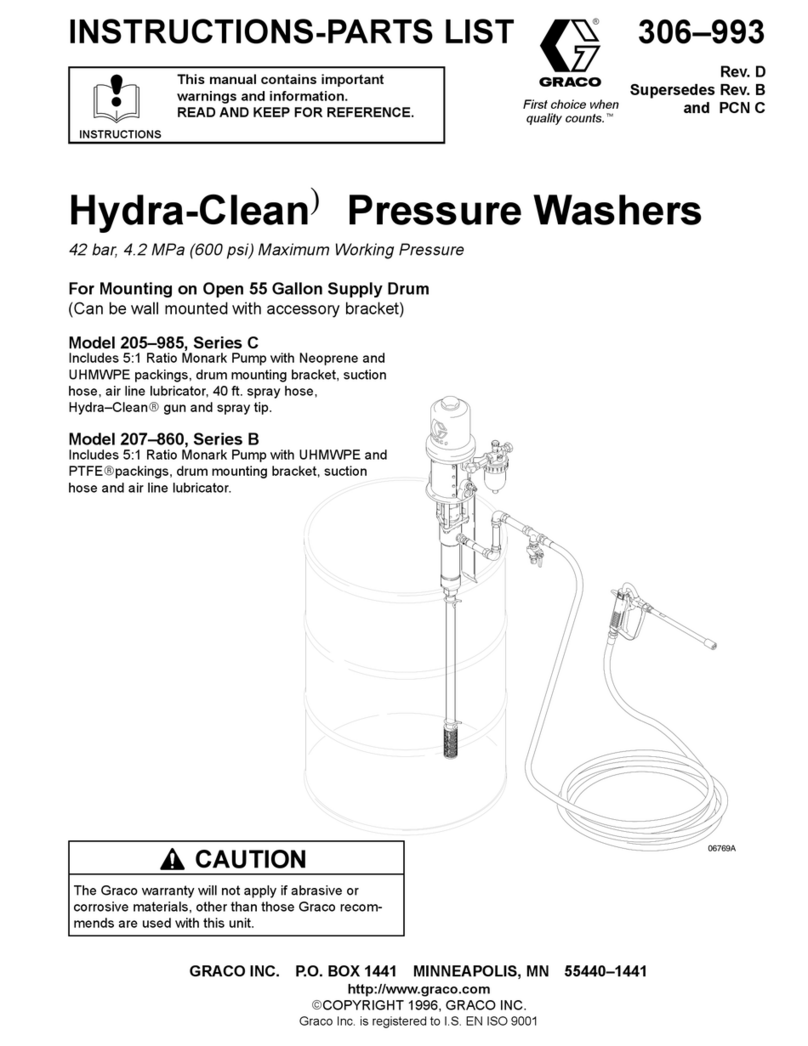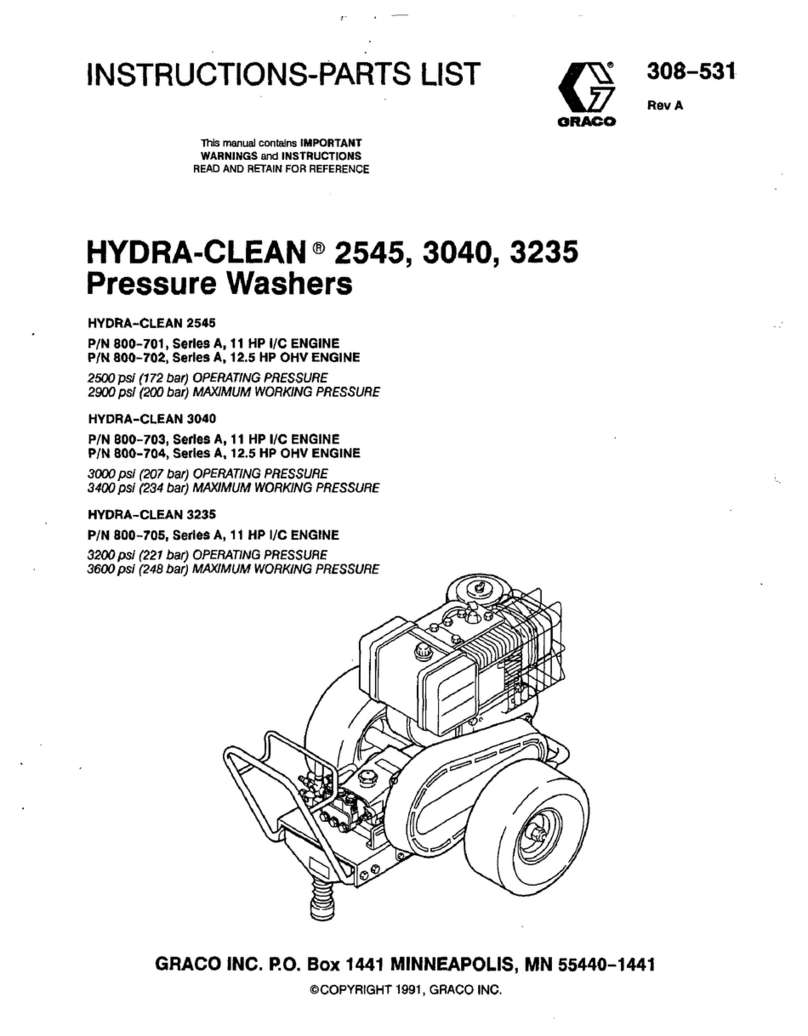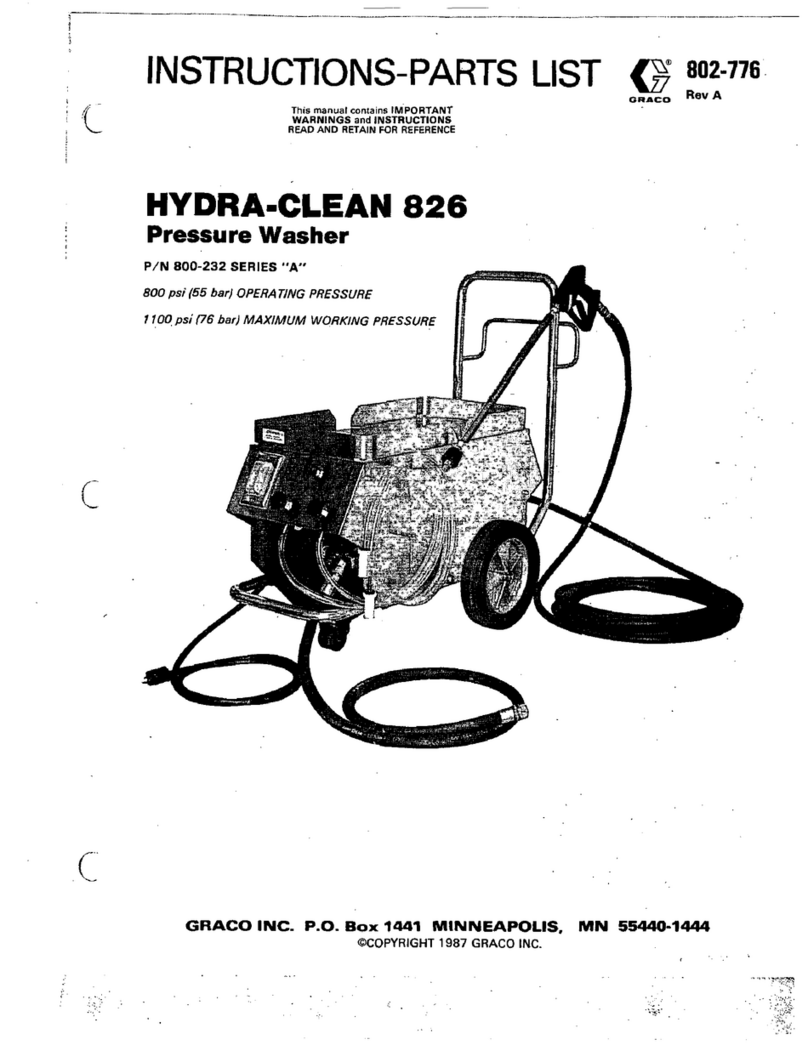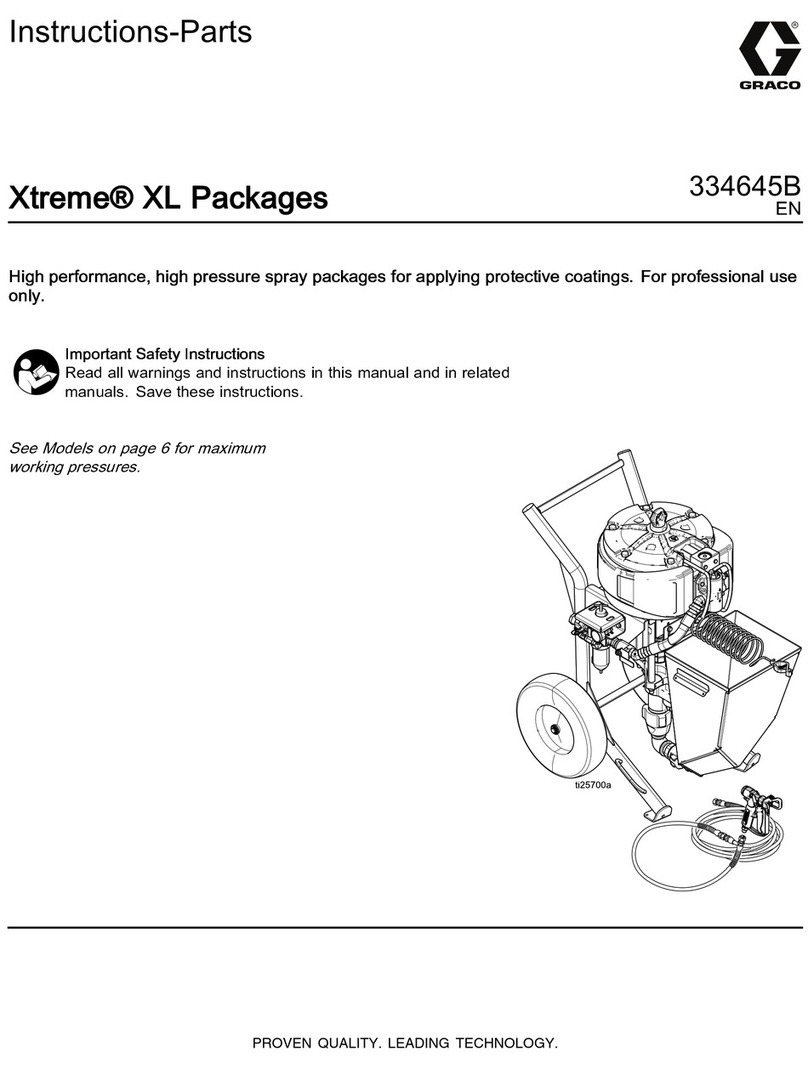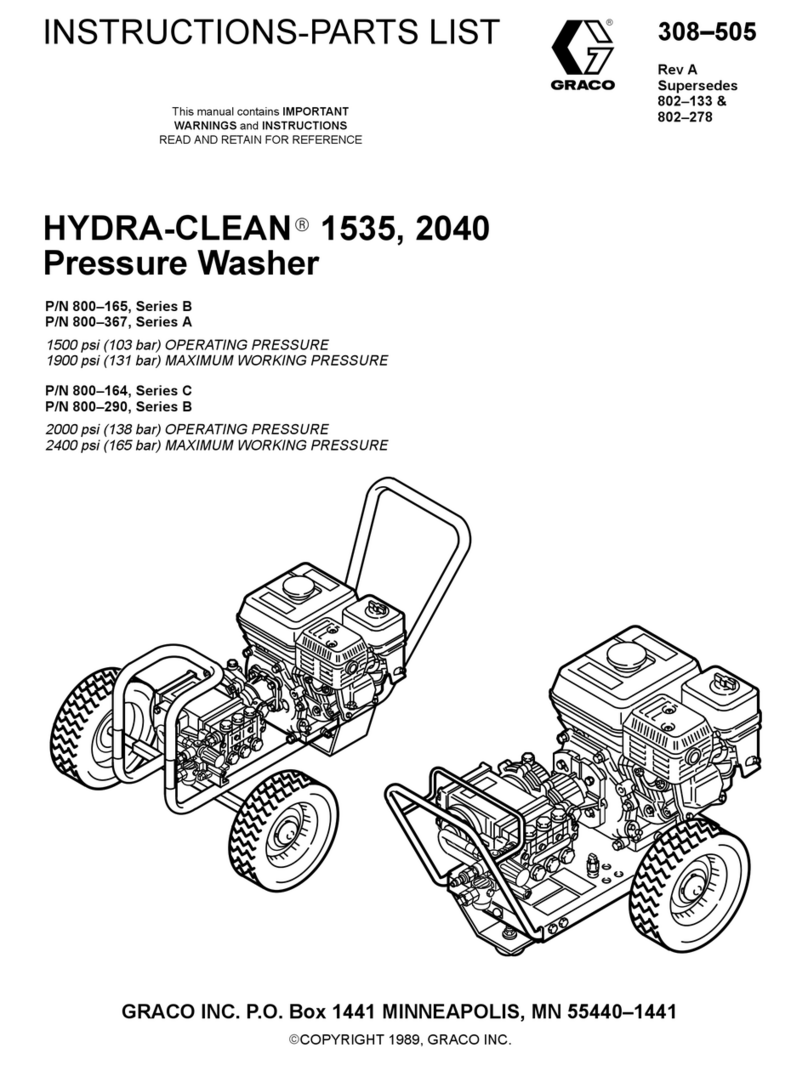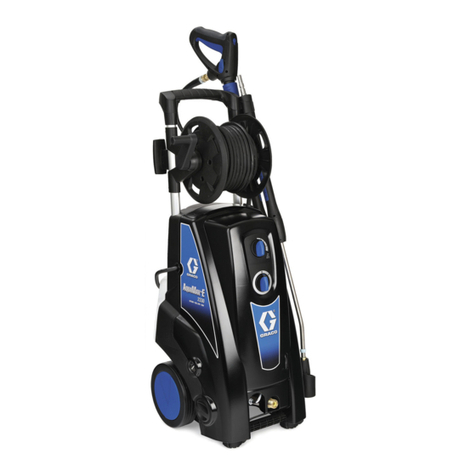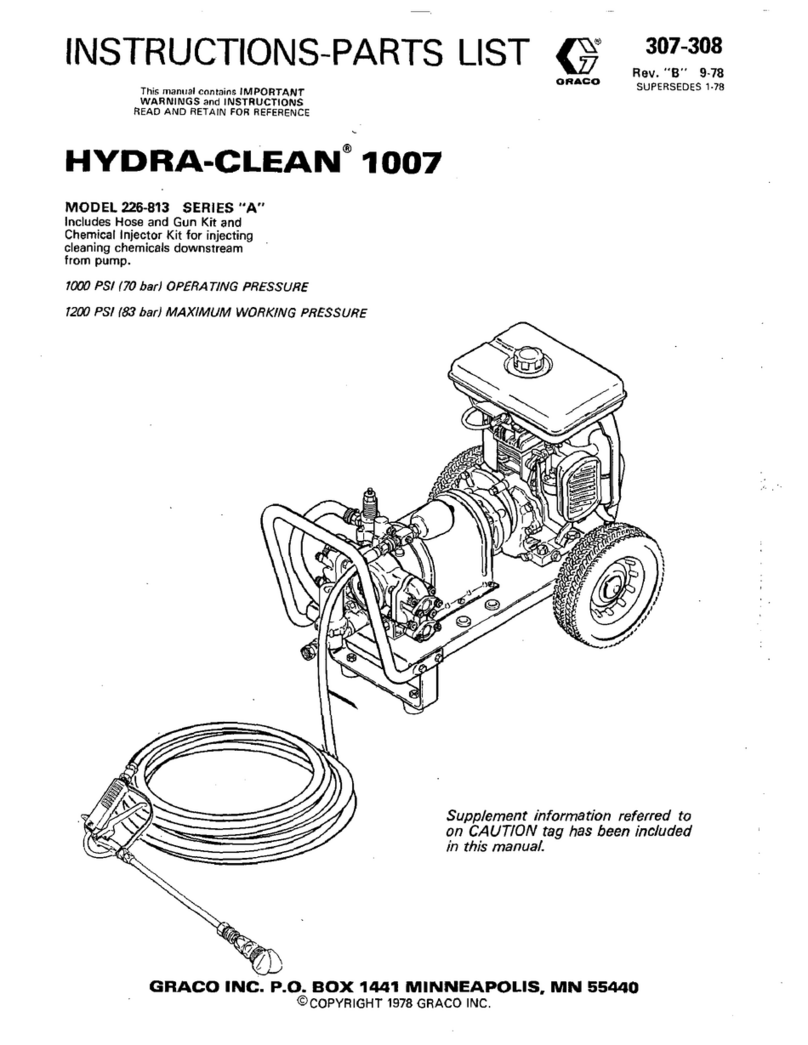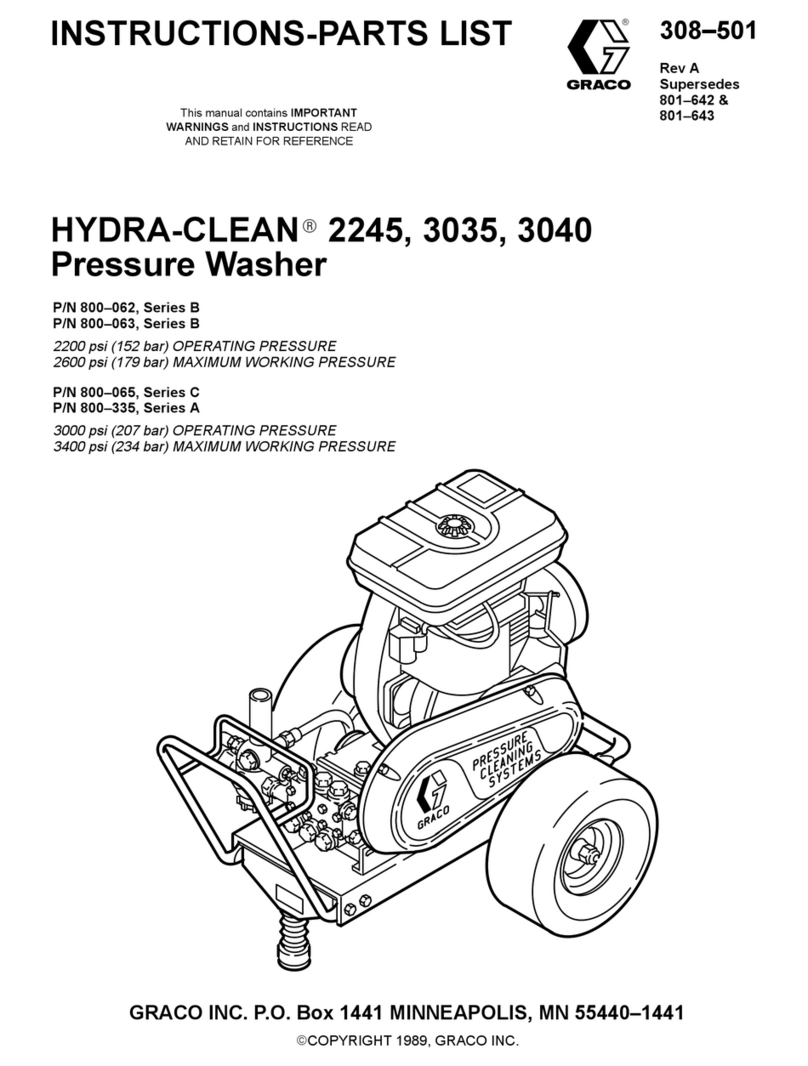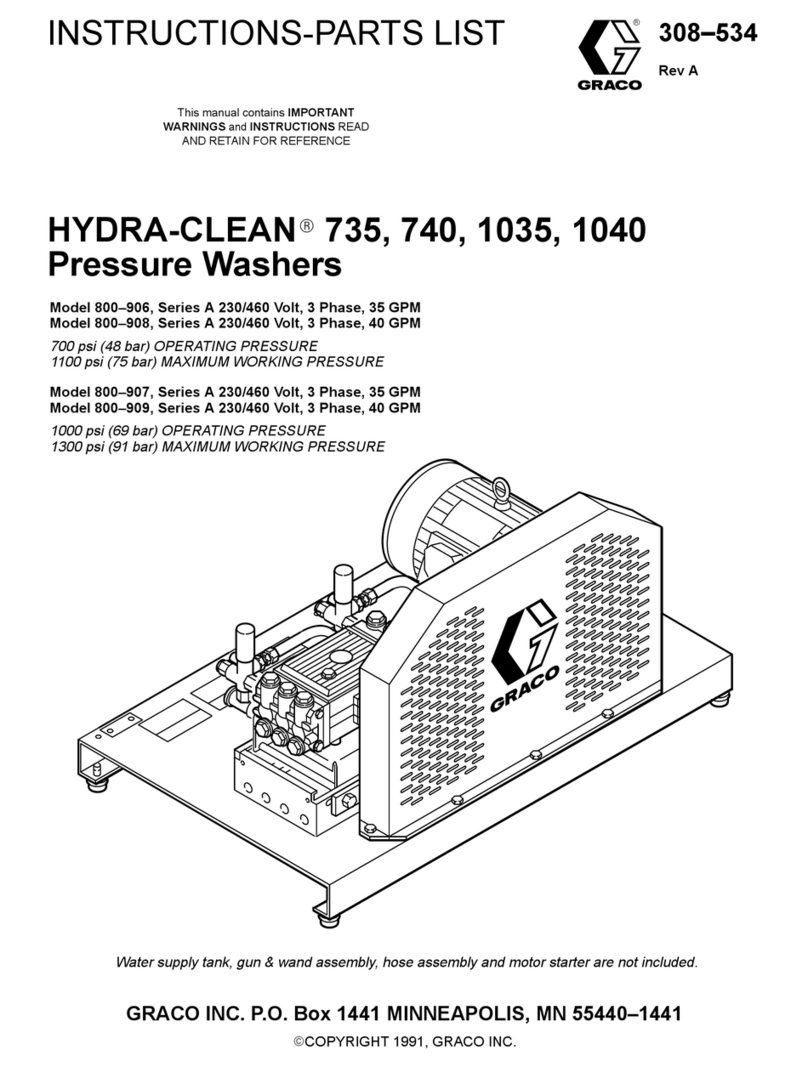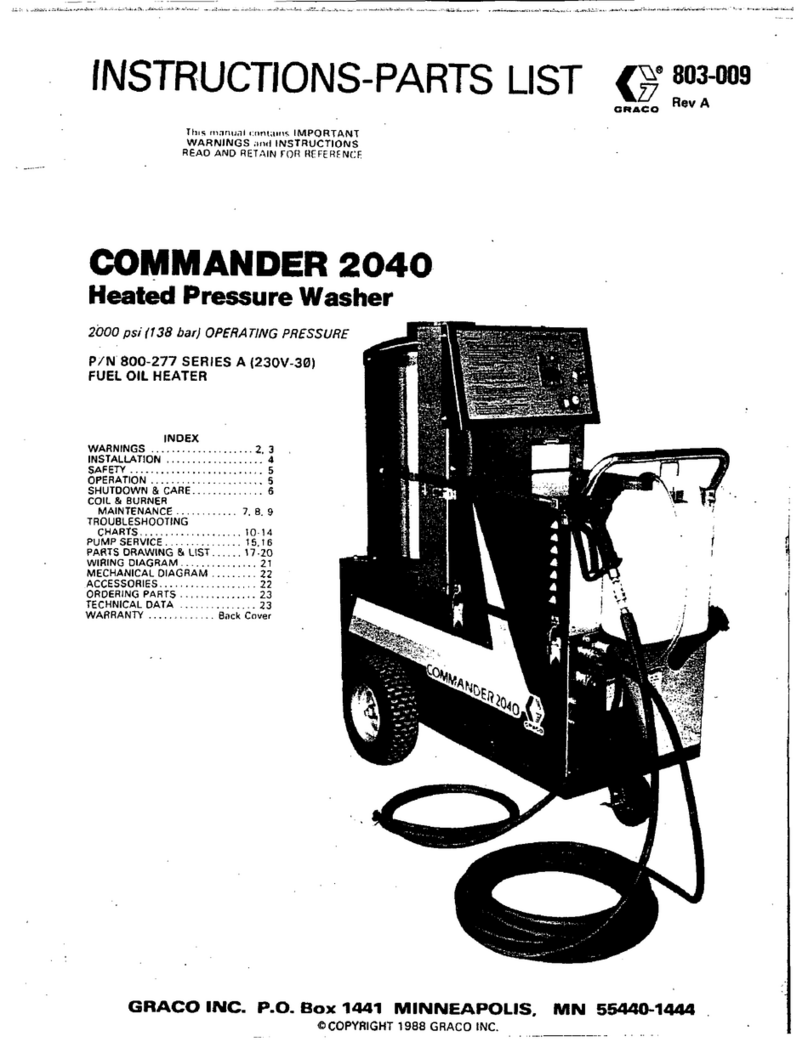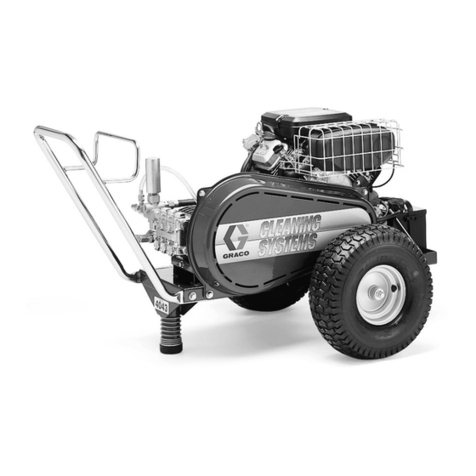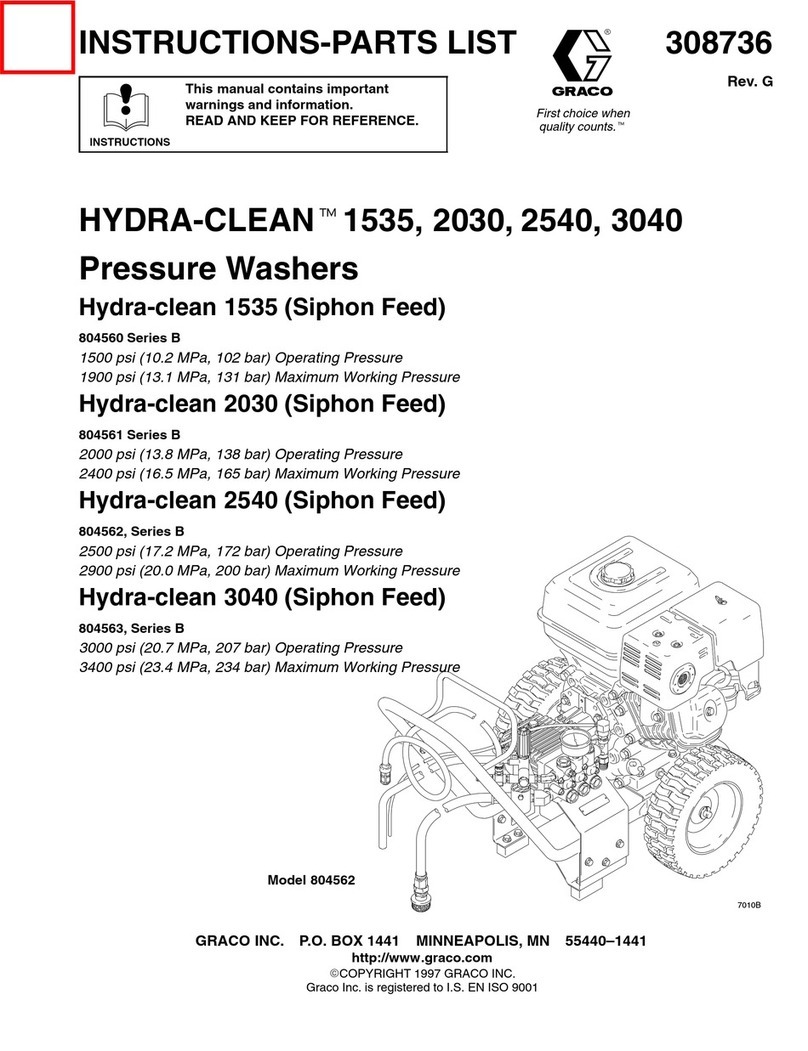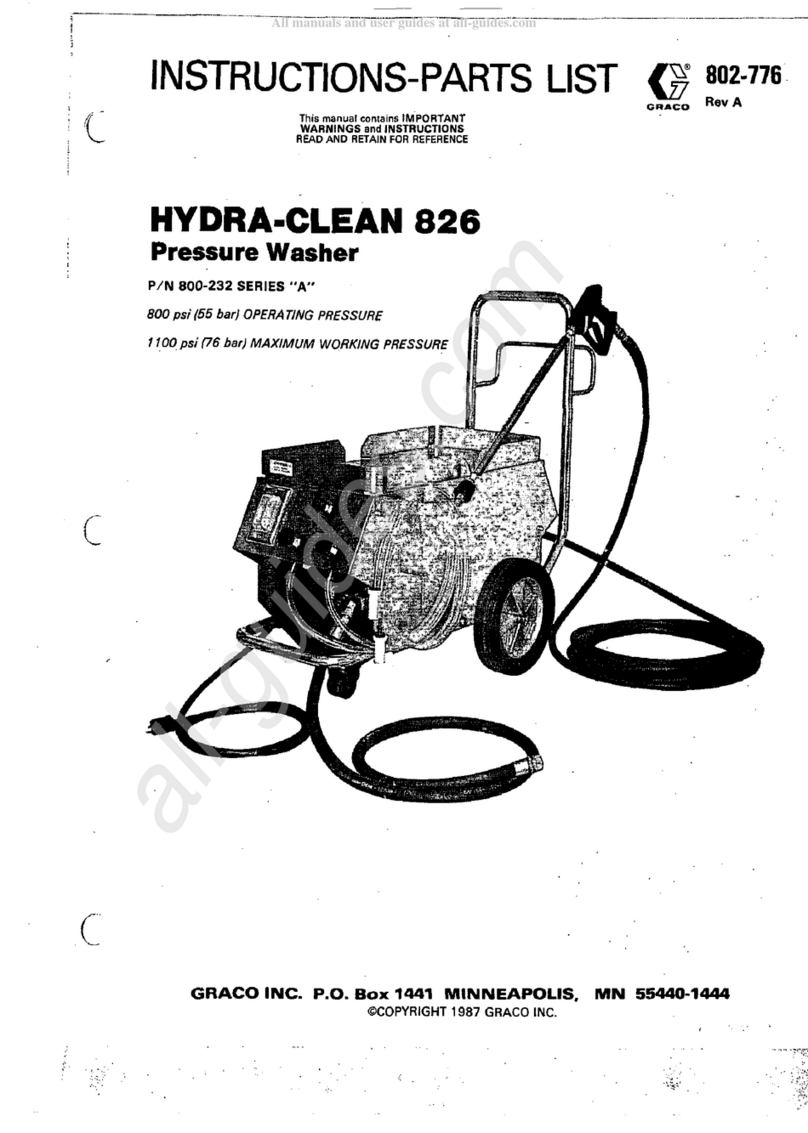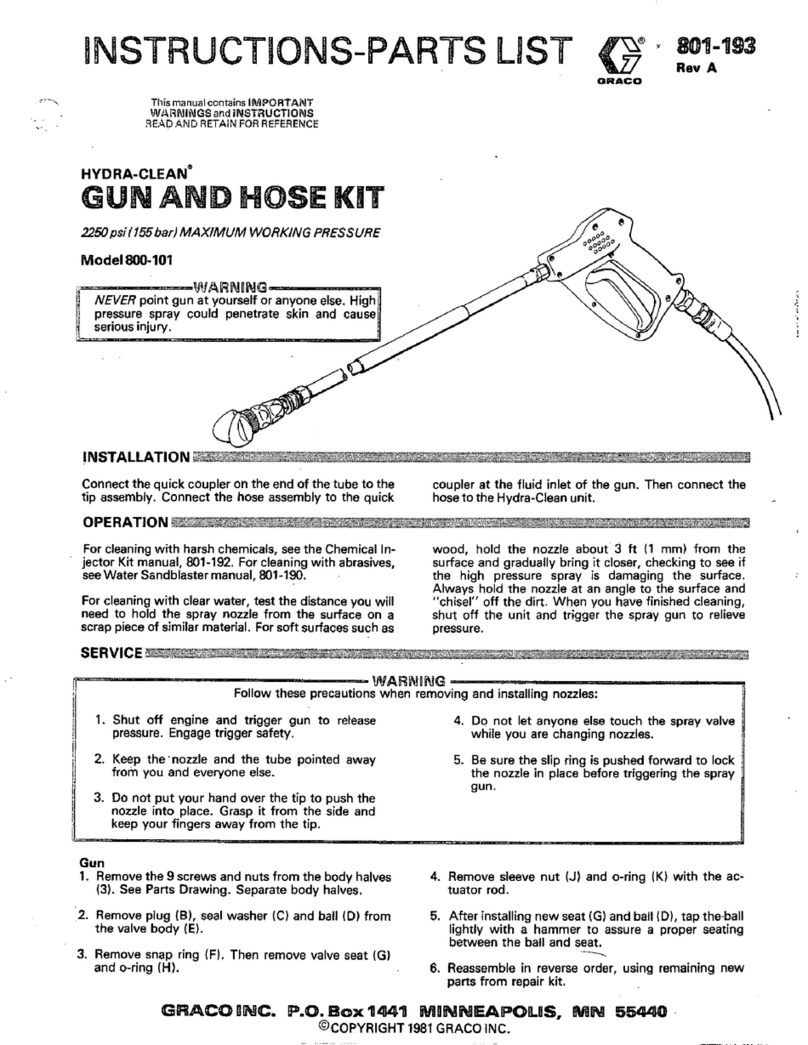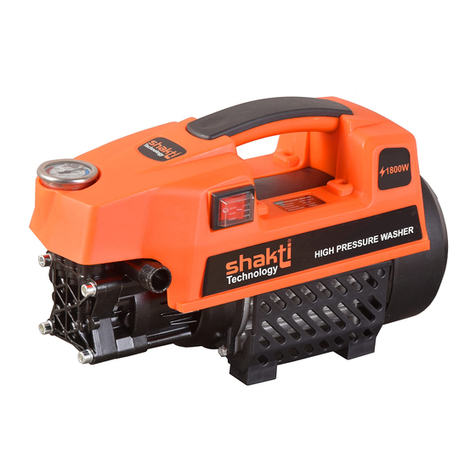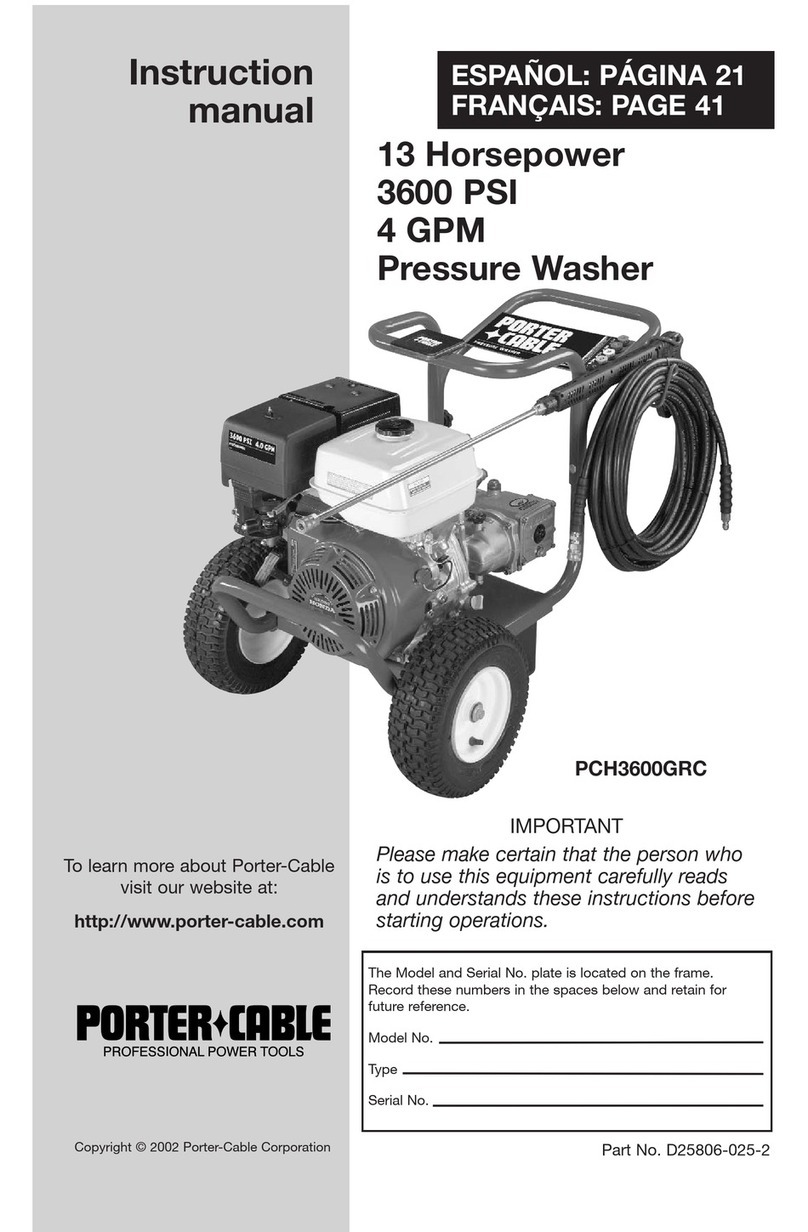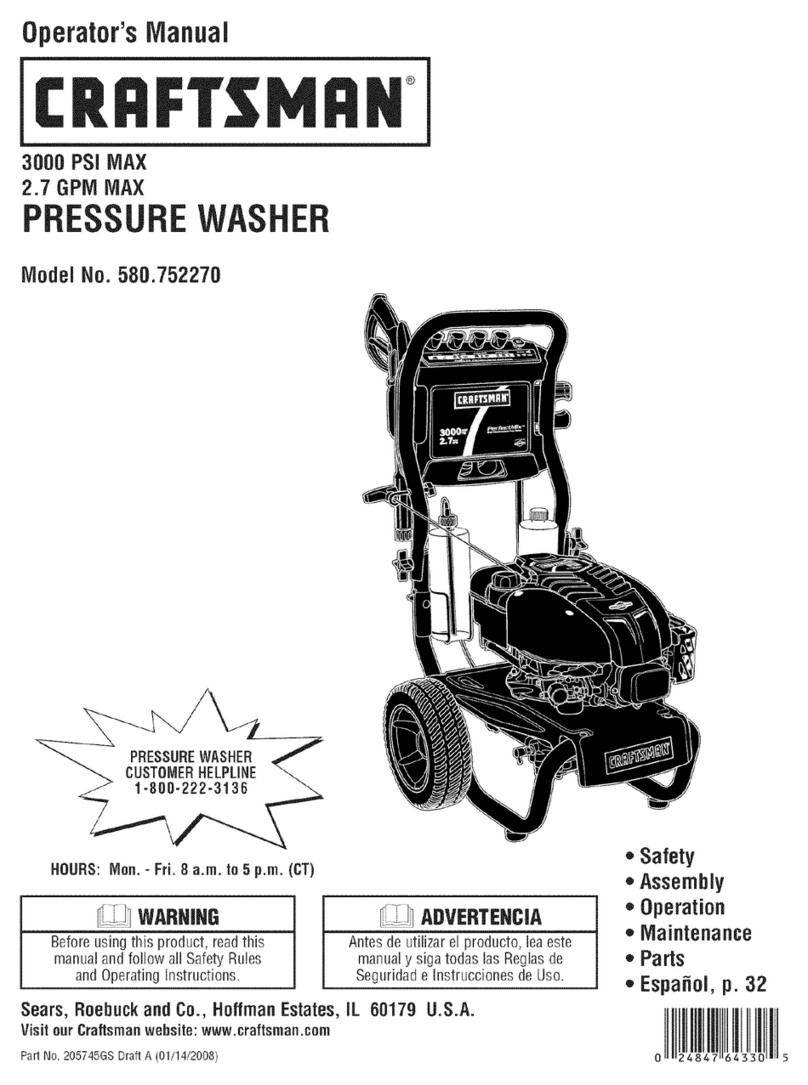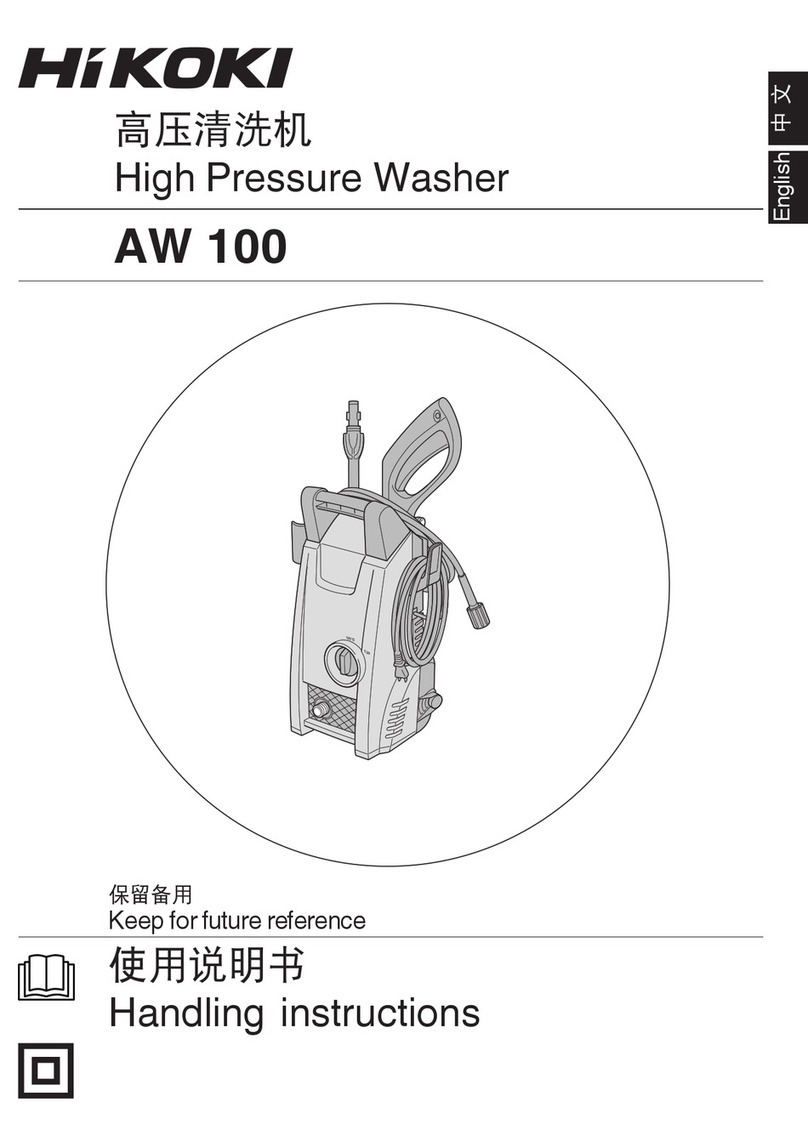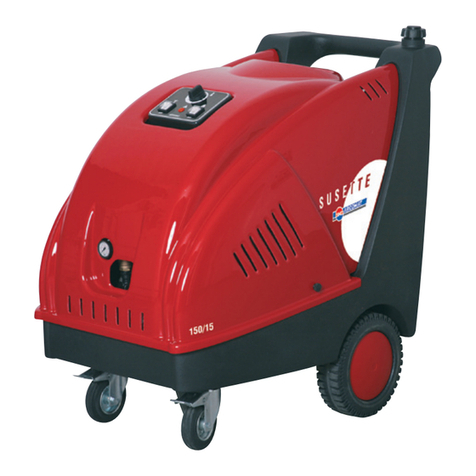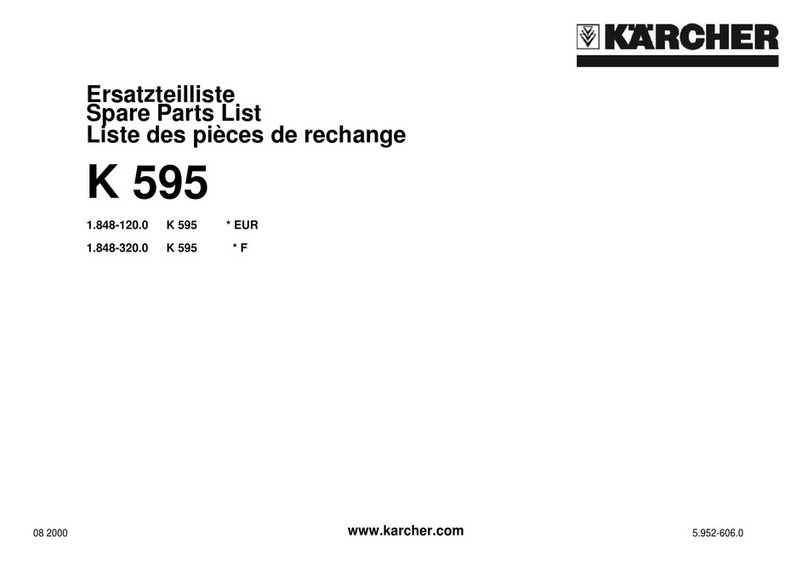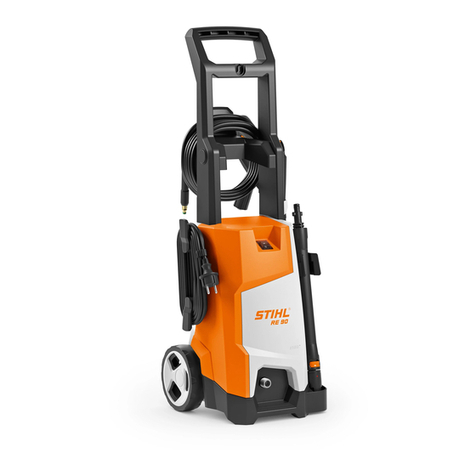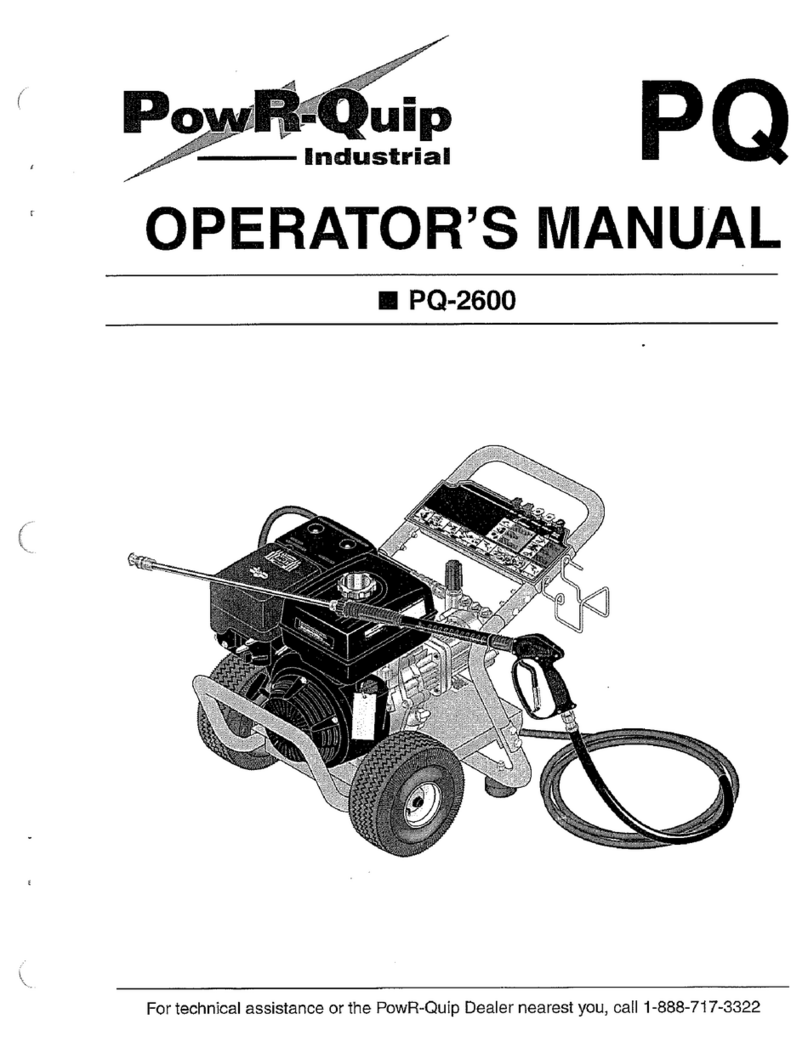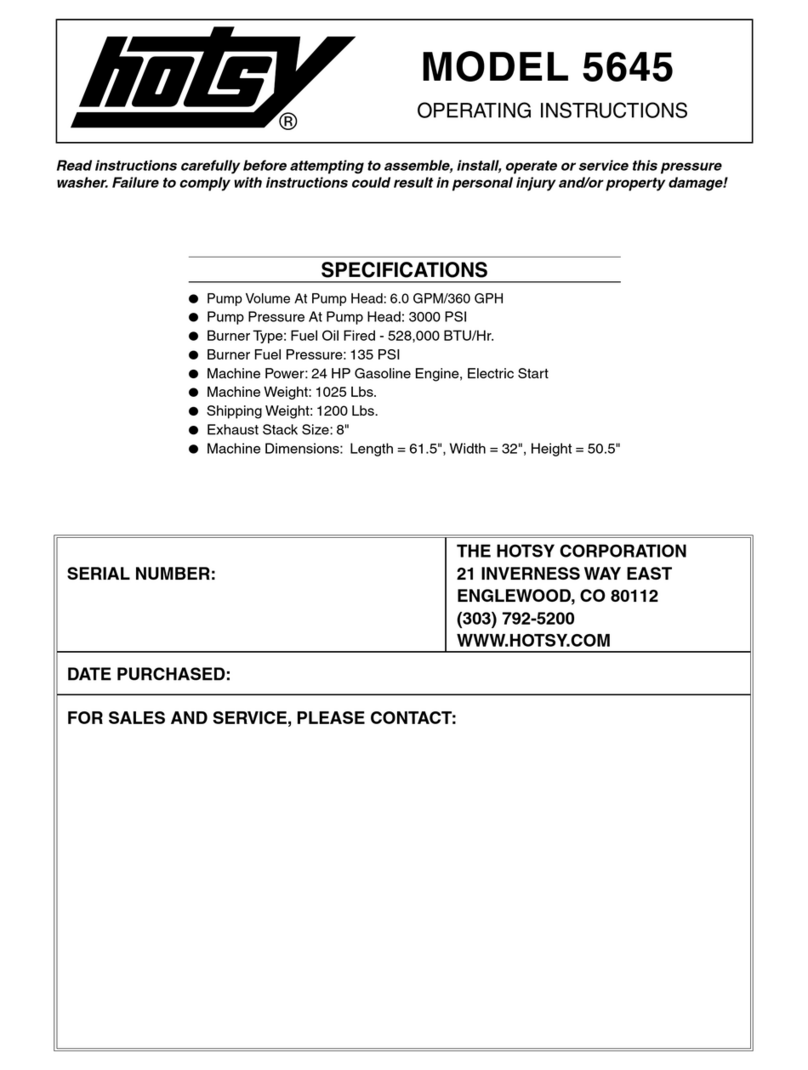ReadandLinderstandall ii;sir!.lcticn
rcanui:/s
before operating equipment.
1
N
j
E
CT
1
3
N
{+
fi
2
A
3
9
~~~~~~~~~~~~~~~~~~~~~~~~~~~~~~~~~~
penetratethe skin andcauseextremely serious injury,
Fluids underhighpressure from sprayorleaks can
including the need for amputation.
NEVER
point thespray gun atanyone or any part of the
body.
NEVER
put hand or fingers over the spray tip.
NEVER
tryto stopor deflect leaks with yourhand or
body.
ALWAYS
have the tip guard in place when spraying.
MEDICAL
TREATMENT%
Ifany fluid appears to penetrateyour skin, get
EMERGENCY MEDICAL CARE AT ONCE.
Tell thedoctor exactly whatfluid was injected. For
DO
NOT TREAT AS A SIMPLE CUT.
treatmentinstructionshaveyourdoctor call the
NATIONAL POISON CENTERNETWORK
(412)681-6669
-"a"
*&A&
AVOIDCOMPONENT RUPTURE
Evenafter you shutoff thegasoline engine, there
is
high
pressurein the pump, hose and gun until you release
it
or servicing theunit,
always
shut offthe unit
and
trigger
by triggering the gun.
So
before removing thespray tip
the gun to release pressure.
Be sure that
all
accessoryitemsand system com-
ponents will withstand thepressure developed.
NEVER
exceedthe pressure rating
of
any componentinsystem.
NEVER
alter or modifyequipment
-
yourpersonal
safety, as well as~the function oftheequipment,is
at
stake.
ed conditionscaused by traffic, sharp corners, pinching
Before eachuse, check hose forweak, worn or damag-
or kinking. Tighten all fluid connectionssecurely before
each use.Replaceany damaged hose.
blewith Buna-Nand PVC orneoprene cover of hose.
Do
not use chemicalsor agents whichare not compati-
Do
not leave
a
pressurizedunit unattended. Shutoff the
unit andrelease pressurebefore leaving.
''
engine wherecombustiblefumes or dustmay be
Do
not spray flammable liquids.
Do
not operatethe
present.
GAS
ENGIME
FRECAUilONSS%
NEVER
fillfueltankwhile engineis runningorhot.
Avoidthepossibilityof spilled fuelcausing
a
fire.
Always refuel slowly to avoid spillage.
NEVER
operateengine in
a
closed building unless the
exhaust is piped outside. The exhaust contains carbon
which, if breathed,may cause serious illness orpossibly
monoxide,
a
poisonous, odorless and invisible gas,
death.
NEVER
make adjustments on machinery while
it
is con-
from the spark plug.Turning over themachineryby
nected to the engine: first remove theignition cable
hand during adjustingor cleaning mightstart the engine
and machinery, causing serious injury to the operator.
NEVER
run the engine with governor disconnected, or
operate
at
speeds in excess of
3300
RPM
load.
When starting.theengine, maintain
a
safe distancefrom
Precautionisthe bestinsurance against an accident.
moving partsof the equipment.
GENERAL
NEVER
run unit with beltguard removed. Keep clearof
moving parts when unit is running.
Observe detergentmanufacturer'ssafetyprecautions.
Avoidgettingdetergent or otherliquids in your eyes.
Follow the directionson the container regarding contact
with eyes, nose, and skin, breathingfumes, etc. Always
wear full gogglesto protect youreyes from thespray as
well as any debris dislodged by thespray.
If
necessary,
wear gloves or other protective clothing. If antidotesor
treatment are recommended, be prepared
to
use them.
DON'T
spray toxicchemicals such as insecticide ar
weed killer.
IMPORTANT
United States Government safety standardshave been adopted under the Occupational Safety and Health Act. These
standards
-
particularly the General Standards,
Part
1910,
and the ConstructionStandards,
Part
1926
-
should becon-
sulted in connection with your use
of
airless spray equipment.
2
801-191
~~



